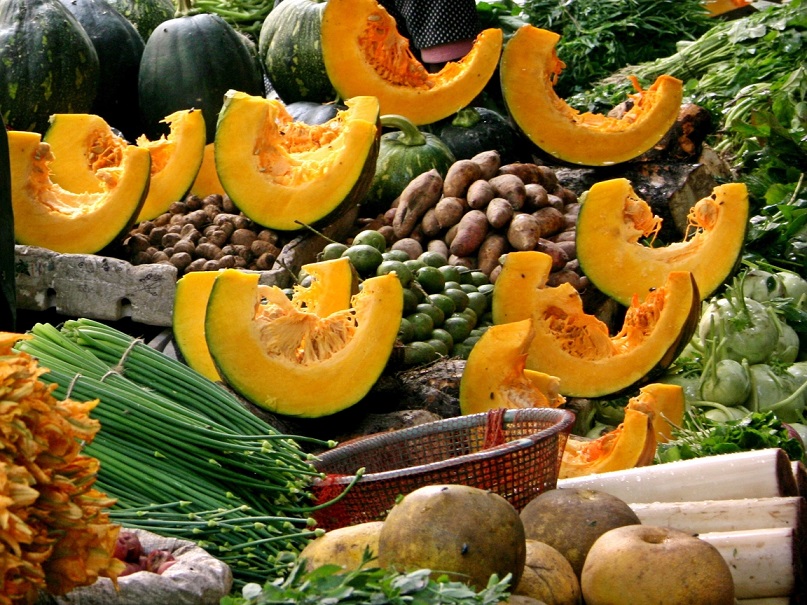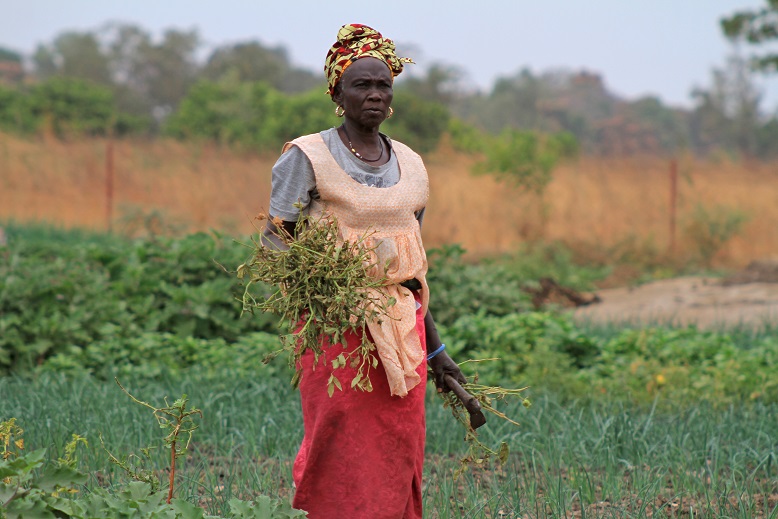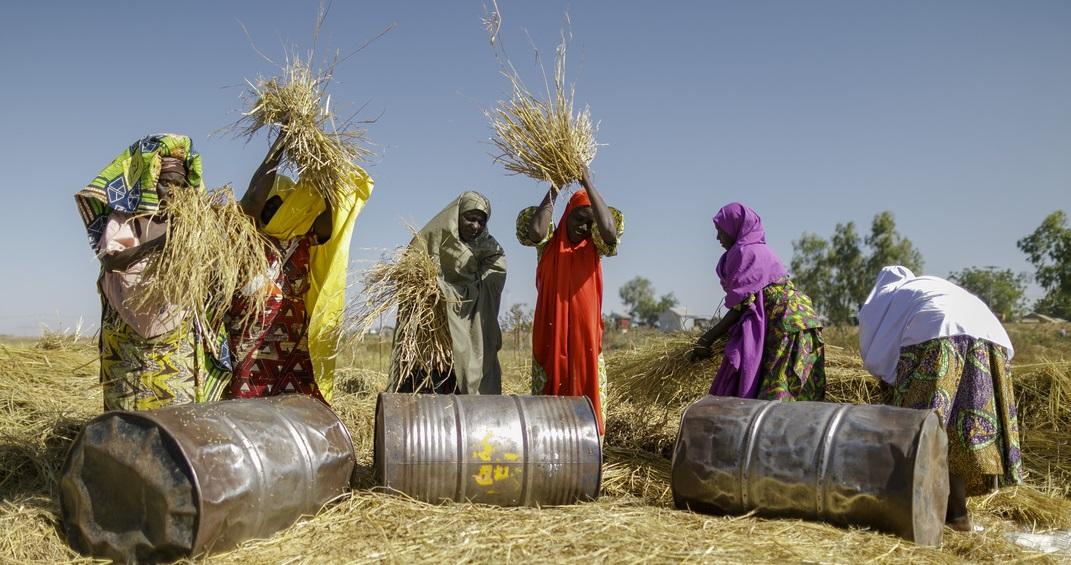With a narrow window for innovation, will our food systems transform or unravel?
The latest in Forum for the Future’s Future of Sustainability series sees Forum’s Associate Director for Sustainable Nutrition, Lesley Mitchell in conversation with Charlene Collison, Forum’s Associate Director for Sustainable Value Chains and Livelihoods as they discuss the past, present, and future of food, and why food systems transformation could be the great unlock to tackling our intensifying social and environmental crises.
The podcast is available here.
In your view, how important is it to protect food biodiversity and sustain traditional indigenous crops? Are there any examples of best practices you could share?
Food diversity and traditional crops are both necessary and important if we are to ensure the future of our people and planet. At present, 75 per cent of Earth's food supply draws on just 12 crops and five livestock species. The UN Food and Agriculture Organization reported in 2018 that 48 per cent of our daily calories come from just three crops: rice, maize and wheat.
We cannot continue relying on such a narrow group of staple crops; while they did meet industrial demand and could scale easily, they have reached their peak production potential. With rapidly shifting climatic conditions – especially in some of our most vulnerable regions – crop yields are falling year-on-year, signalling the potential failure of the world’s breadbaskets. If they collapse, so will our global food systems. We need to mainstream alternative crops, and fast.
Traditional indigenous crops, such as millet, have proven to be resilient to harsher climate conditions. Many native species of crops are also better adapted to grow in certain regions than the varieties currently favoured by the market.
We need to find more systemic solutions that can balance both productivity and resilience. These solutions often look to local and indigenous knowledge, from people with wisdom and a mindset that understands how to work with the natural environment. We will also need to respect that this is knowledge that belongs to diverse communities – it is their intellectual property. If we simply bring indigenous knowledge to an industrial scale without co-designing, consulting and collaborating with communities and owners, we risk perpetuating the extractive models that caused the problems in our global food systems in the first place.
With diversity comes complexity. The current agricultural system is based on uniformity and simplicity. Building back soil health and carbon will require different and more diverse crop varieties and rotations. We have an urgent imperative to protect food biodiversity and start mainstreaming traditional indigenous crops, but we must be systemic in our decision making in order to future-proof our food systems.

You mention in your podcast that the role of farms in the future may shift, as they not only produce food but also capture carbon and increase biodiversity. How can business best support smallholder farmers in their expanding role?
Smallholders are the backbone of the world’s food systems – they produce a third of the world’s food, according to the UN FAO. Business has a role to play in supporting smallholders, but must first ask themselves several questions and think outside of a “Business-As-Usual” mindset. For instance: how can smallholders engage in the market? How can we design business models that share value, as well as smaller batch yields and more diverse crop offtake? Current models that link local farmers with significant markets do exist, but are hard to find. Yet, smallholders could play a key role in the resilience of both their communities and food supply chains, alongside environmental regeneration of soils and biodiversity.
The dangers of BAU thinking are already showing up. In Asia, experts have warned that while agritech could help smallholders improve efficiency, precision and resilience, long-term ramifications could include job losses and widening inequities. A shift in mindset and applying a futures lens can make all the difference – for example, instead of asking ‘Will this investment cause any harm?’, ask, ‘Is my investment enabling conditions for a healthy, sustainable and future-fit food system?’
To support the expanding role of smallholder farmers adequately, businesses will need to:
- Demonstrate support for farmers as land and ecosystem stewards, supported by policies, prices, practical support and business models
- Recognise the farmer is a partner, not a subcontractor, and embed a partnership model in the relationship – for example, through long-term contracting and direct sourcing where feasible
- Invest in alternative business models that incentivise land stewardship and farming itself. If we do not invest in farming, there will be no farmers. Farmers need to be rewarded for investing in ecosystem regeneration, otherwise it will not scale
- Support farmers in transitions – to more resilient crops, multi-crops, and at times to new and other forms of livelihoods where farming is no longer viable

What are some key trends and innovations you have observed among inclusive agricultural businesses working in food production?
A large number of the trends we observed can be classified under diversity: diversified and regionalised markets, engaging farmers in new ways, and gender equity. We see manufacturers wanting to access more diversified, regionalised supply chains, to ensure resilience and security of supply. Businesses are innovating and rethinking their relationships with growers, their procurement structures and logistics. With around 90 per cent of scope 3 emissions (GHG emissions along supply chains) in the food supply chain, farmers become important partners in enabling businesses’ decarbonisation ambitions, emphasising the need for farmer-centred strategy.
On gender equity, there are moves towards capacity building for women being put into place. In just one example, Olam Coffee has trained over 80 women in tractor and vehicle operations since 2016 – work that is typically gendered as male – and as it turns out, women have proven to be better suited for such work than men, with heavy machinery operated by women having lower maintenance costs.
Many food businesses are also working directly with their supply chains to support their transition towards a more regenerative agriculture system. For instance, Morrisons is working with a number of its meat and produce farmers to co-create models of net-zero carbon farming; Cargill’s BeefUp programme works in partnership with its customers such as McDonalds to reduce beef-carbon impacts.
We are also seeing the emergence of a new demographic of farmers: small-scale entrepreneurs who operate at a community level, such as the surge of urban and community farmers during the early days of the Covid-19 pandemic. It will be critical that the different scales of the food system – regional, local, and hyperlocal – can adapt to these new ways of working.
What is key in all these trends is that they evolve in such a way that is both socially just and regenerative as they grow in scale, rewarding farmers for good land practices and increasing their resilience in the face of climate disruption and adaptation. Most mainstream structures, from policy to finance mechanisms, do not yet support the transition to regenerative agriculture at scale. Business model innovations that fundamentally change value propositions are needed – for example, ecosystem services markets show promise, but they will need to be designed to support social and environmental outcomes and reward fair value to the grower in order to be sustainable.
The challenge for business is thus to help innovations evolve in ways that are just and accessible to all types of farmers, and critically, engender new mindsets around stewardship and partnership with nature, rather than creating just incremental add-ons to existing extractive practices.
